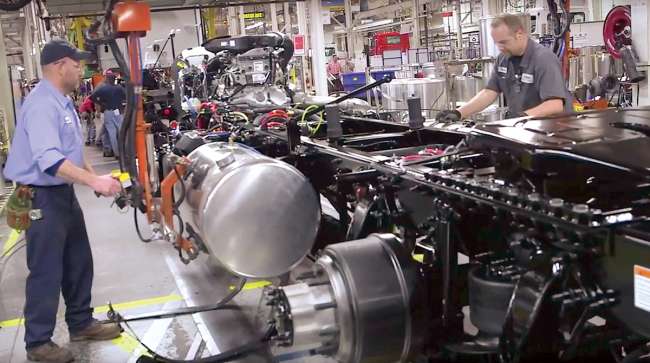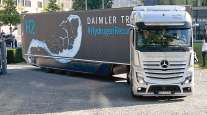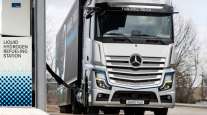Senior Reporter
Daimler AG to Cut Thousands of Jobs by 2022

[Stay on top of transportation news: Get TTNews in your inbox.]
Daimler AG, the parent company of Mercedes-Benz and Daimler Trucks, announced it will eliminate thousands of jobs worldwide by the end of 2022 amid weakening car sales in China and the costly push to develop electric vehicles.
The plan will reduce staff costs by around $1.5 billion in the next three years and reduce the number of management positions worldwide by 10%.
The cuts could total at least 10,000 employees, according to news reports.
At the same time, earlier labor agreements will ensure job protection in Germany until the end of 2029, as agreed upon in the spinoff of Mercedes-Benz Cars & Vans and Daimler Trucks & Buses.
“The automotive industry is in the middle of the biggest transformation in its history. The development towards CO2-neutral mobility requires large investments, which is why Daimler announced in the middle of November that it would launch a program to increase competitiveness, innovation and investment strength,” according to a company statement.
Daimler and the employee representatives also agreed to reduce further staff costs.
Among other things, there will be offers to the workforce to reduce weekly working time. The company will extend expiring contracts for temporary workers in the administration very restrictively and also will be very restrictive in allowing 40-hour contracts for permanent employees.
More details will be available in the weeks ahead, Daimler reported Nov. 29.
A spokesman for Daimler Trucks North America, the market leader in U.S. Class 8 retail sales, told Transport Topics, “We have nothing to add to the [Daimler AG] release at this time.”
Stricter emissions regulations are coming into effect, and the new rules are all but impossible to meet without sizable sales of electric vehicles, which are still less profitable than conventional cars because of battery costs, according to Bloomberg News. Trade wars and softening demand in major markets like China have made navigating the transition even more fraught. Germany’s automakers are particularly exposed, because they rely on horsepower and performance to justify higher prices.
The latest plans by Daimler and Audi mean cuts of more than 100,000 industrial jobs have been announced this year in Germany, which narrowly avoided stumbling into a recession in the third quarter.
Want more news? Listen to today's daily briefing:




